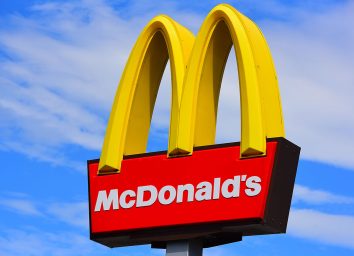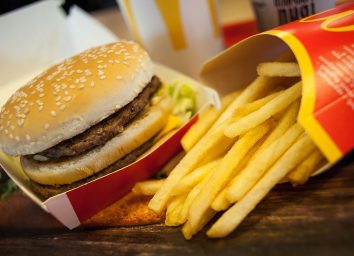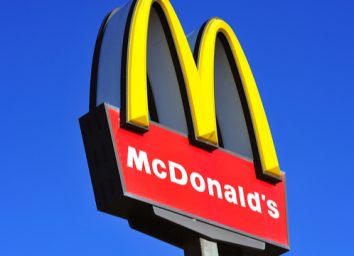What Happens to Your Body When You Eat McDonald’s
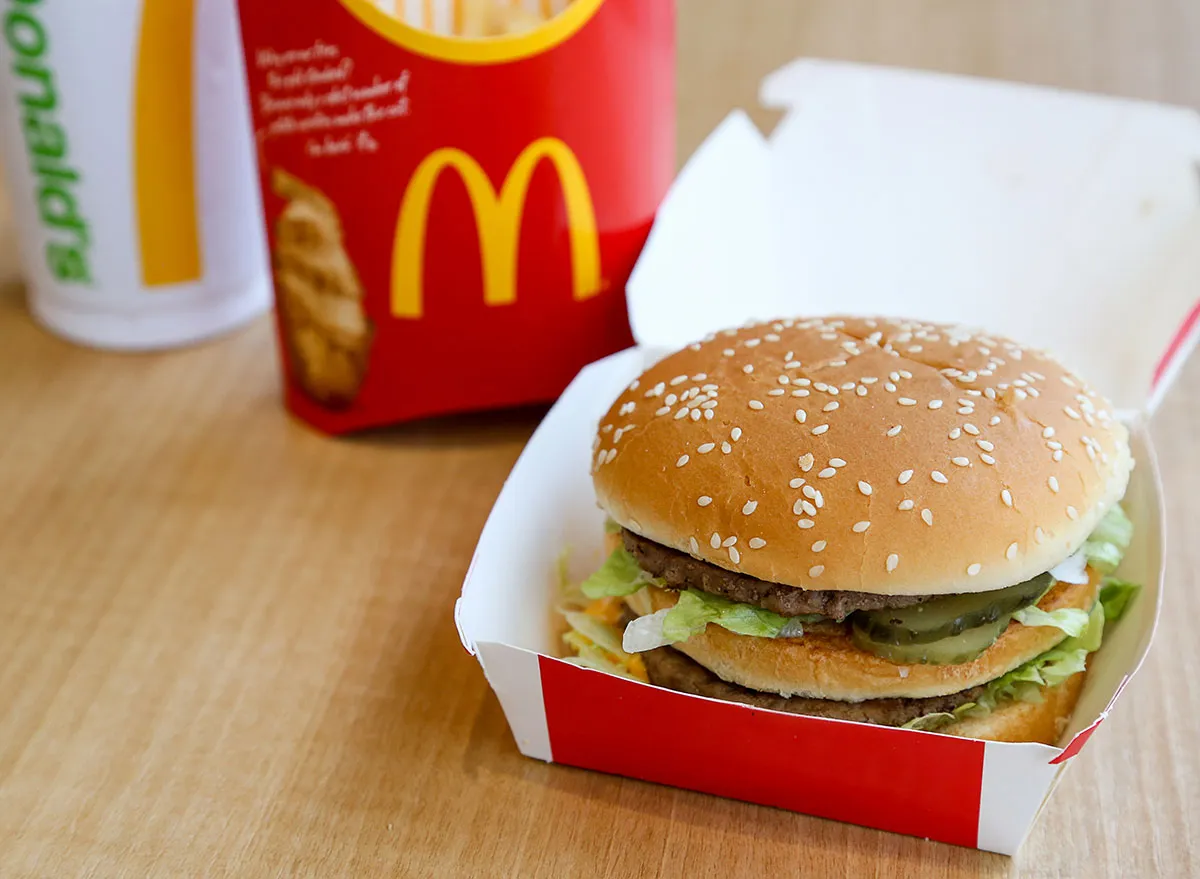
When hunger strikes and you just don’t feel like cooking, nothing makes life easier than driving down to your local McDonald’s and grabbing an order at their drive-thru. Whether you count yourself as a die-hard fanatic or just a casual restaurant-goer, McDonald’s serves up meals like no other. But even if this drive-thru giant feels like the easiest option, it’s not always the healthiest, and it can lead to your body experiencing some negative side effects when you eat McDonald’s.
These richer foods add up and when you eat McDonald’s, your body undergoes some very unique changes we might not experience eating anywhere else. To guide us through all the physiological changes that take place the moment you put that burger or milkshake in your mouth, we assembled a team of nutrition experts to explain what exactly happens whenever you bite into that burger or dig into a McFlurry.
Whether you grab a supersized meal at McDonald’s every day or just drop by occasionally, expect to see these effects when you eat Mcdonald’s regularly, and for healthier meal options, check out our list of 100 Easiest Recipes You Can Make.
Digestion problems
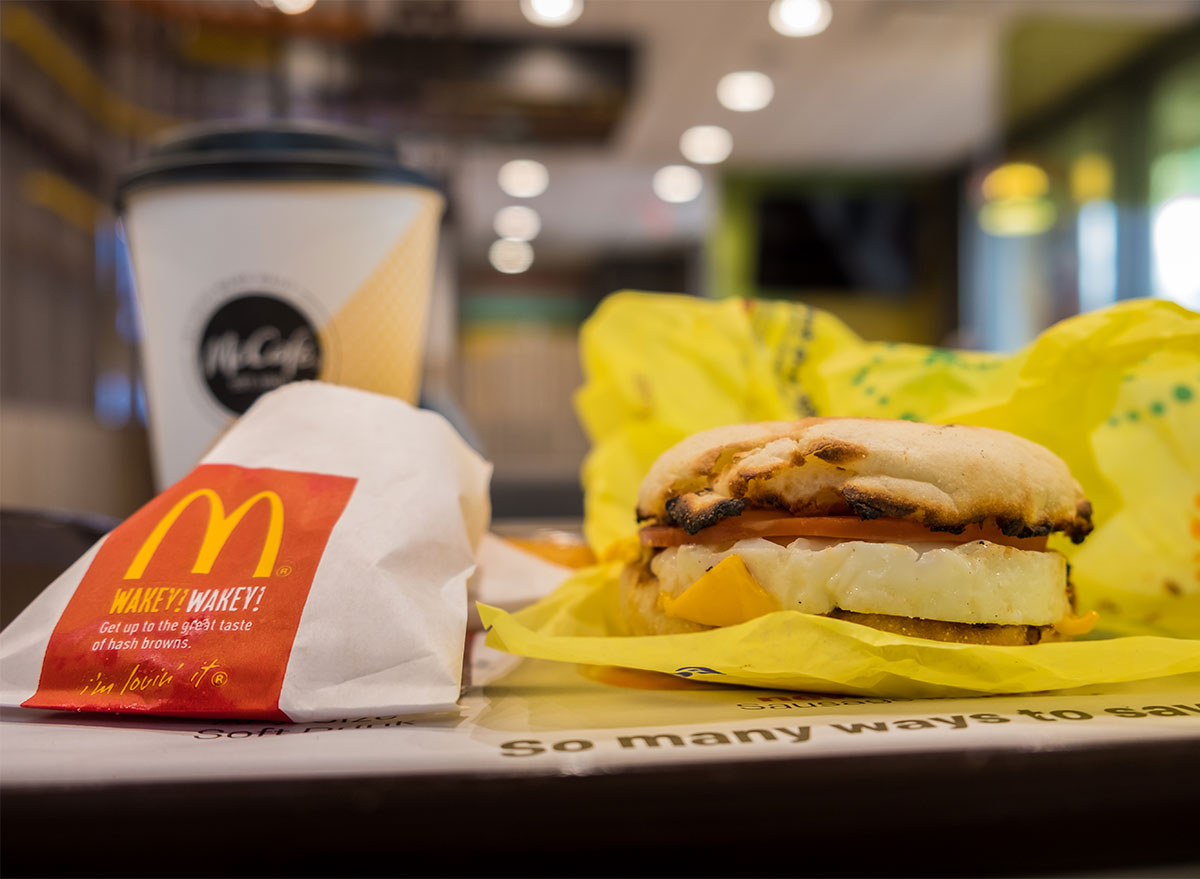
Anyone who loves to eat McDonald’s has probably noticed that after their meal, it’s so much harder to keep going with your day and everything feels so much heavier. Don’t take this feeling for granted—your body faces some indigestion issues when it tries to process all of the food you just took in.
“Fat is the slowest digested macronutrient,” says Allison Gregg, RDN, LDN. “Foods with a high-fat content slow stomach emptying. This means they spend more time in your stomach which can result in bloating, nausea, and stomach aches. You may experience these symptoms within a 24-hour window after consuming a hamburger or milkshake, especially if you consume multiple high-fat items together. That may make you re-think the infamous question, ‘Do you want fries and a shake with that?'”
To learn which items can do the most serious damage, check out 10 Worst Menu Items at McDonald’s.
Heart-rate spikes
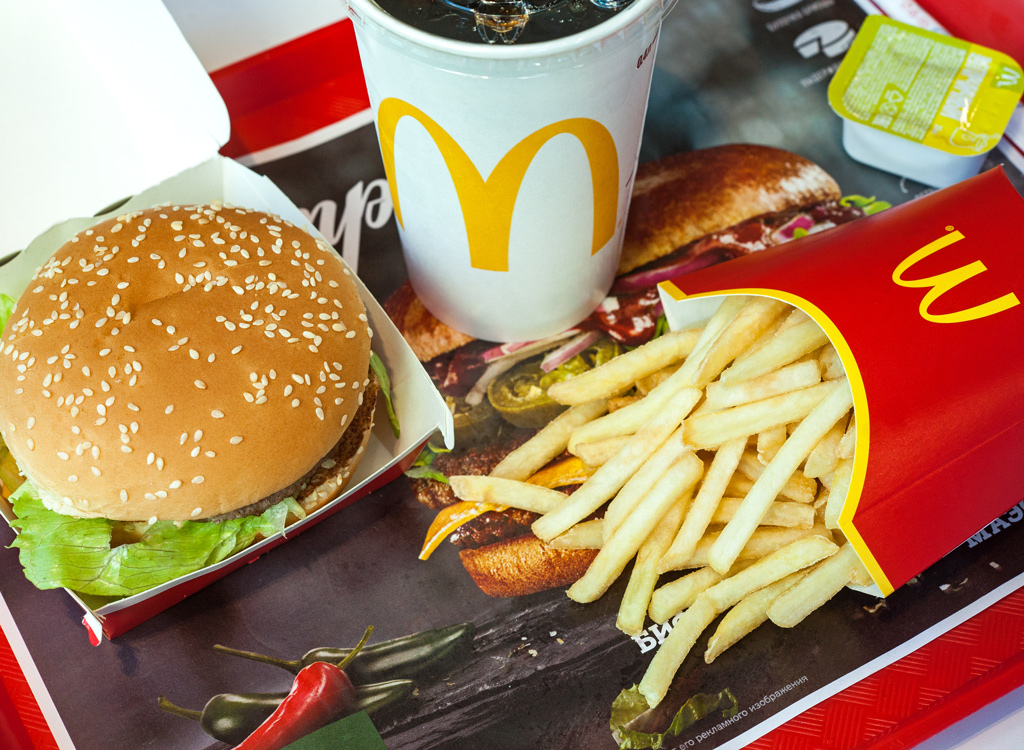
Sugar has some very noticeable immediate effects, and if you can’t go to McDonald’s without grabbing a McFlurry or soda, expect to encounter spikes in your heart rate.
“Drinks such as milkshakes, soda, tea, lemonade, and coffee drinks all have high sugar contents,” says Gregg. “The body converts sugar into glucose within minutes after consuming. This can raise blood pressure and heart rate.”
“Milkshakes can be another problem,” says Phung D. Tran, ACSM certified exercise physiologist and founder of Be Active is Easy. “The shakes you drink contain an insane amount of sugar, which leads to a temporary spike in your heart rate. After a couple of hours, you will then feel a slump and need to eat again. That is how milkshakes, specifically the processed sugar, affect your feelings about food.”
Inflammation
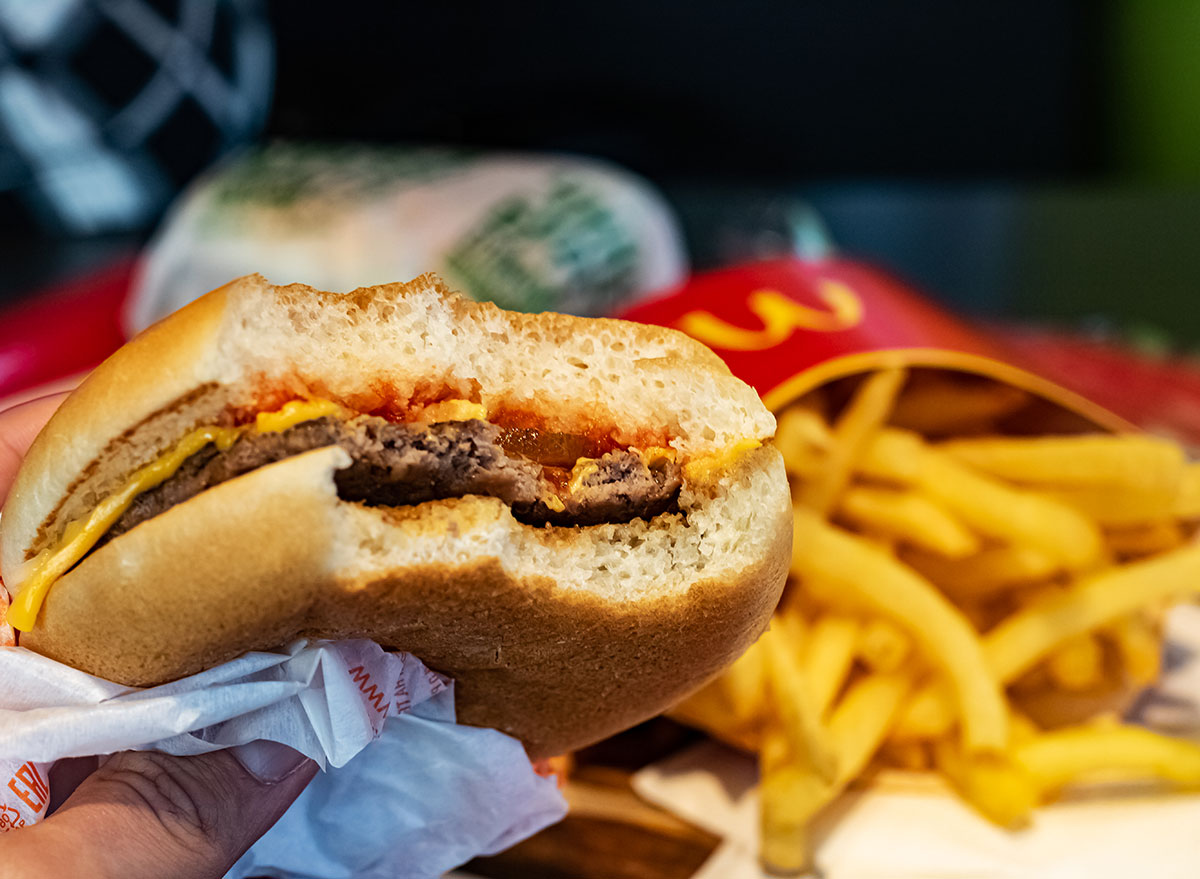
Science has slowly shown us that inflammation can lead to some of the greatest health concerns of our times. Unfortunately, the greasier McDonald’s foods easily lead to this immediate effect.
“The refined and processed nature of the most common foods on McDonald’s menu creates a state of inflammation in the body almost immediately,” says Trista Best, MPH, RD, LD of Balance One Supplements. “This inflammation leads to fatigue and brain fog that can derail the consumer’s day completely. If you must eat at McDonald’s on a regular basis it is best to opt for grilled animal products like chicken and whole foods that aren’t deep fried like salads and fruit.”
Here are 14 Tips to Reduce Inflammation to Lose Weight Faster, According to RDs.
Fatigue
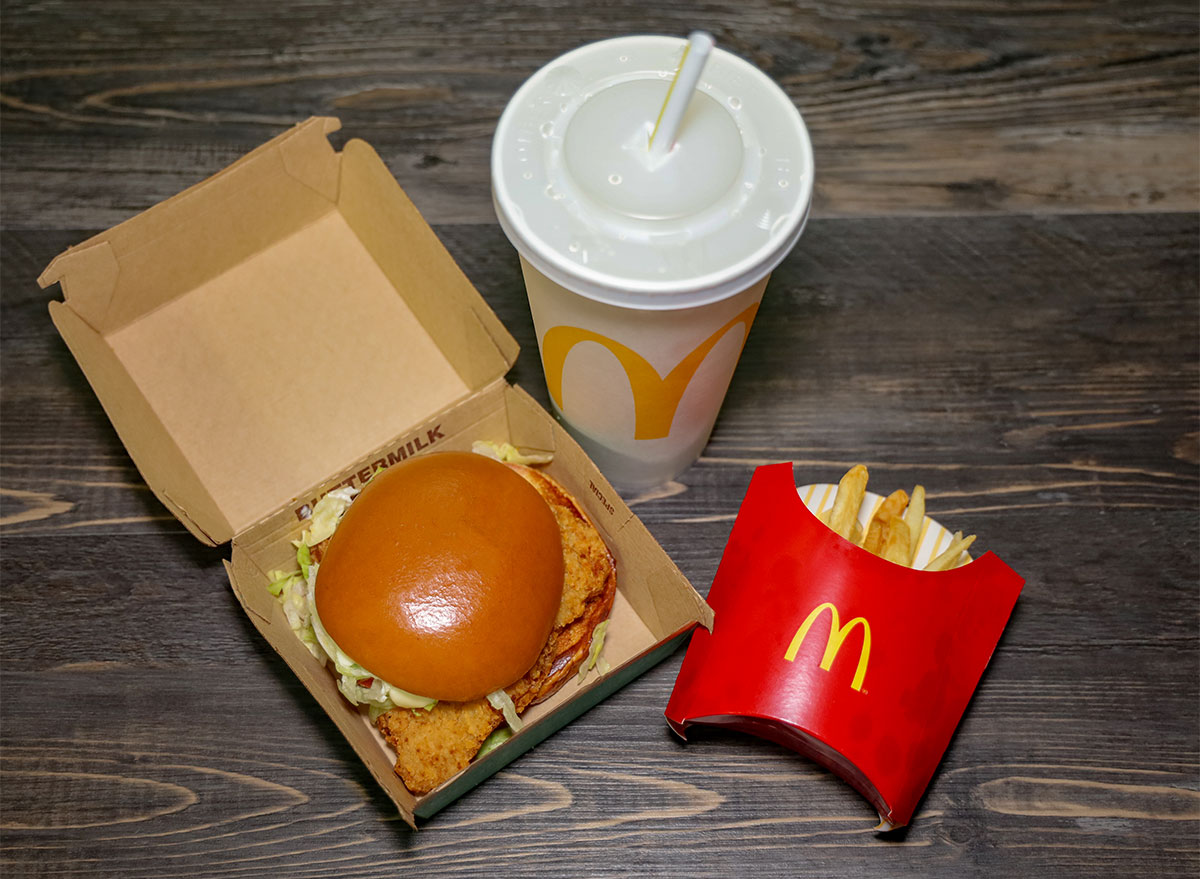
Unless Thanksgiving has rolled around, that feeling of getting so tired after eating can really throw off our day. The extra fat that burgers and fries pack in can lead to this very effect.
“Canola oil replaces the cell membrane of every cell it interacts with instead of a healthy membrane created from specific amounts of healthy saturated or unsaturated fat, and canola oil is a very poor cell membrane,” says Dr. Stephen Newhart, Ph.D.. “Canola oil inhibits energy…from storing up inside of the cell, instead it is instantly wasted. When cells cannot store energy, they die at a rapid rate and the person feels tired and sluggish.”
Chemical dependency
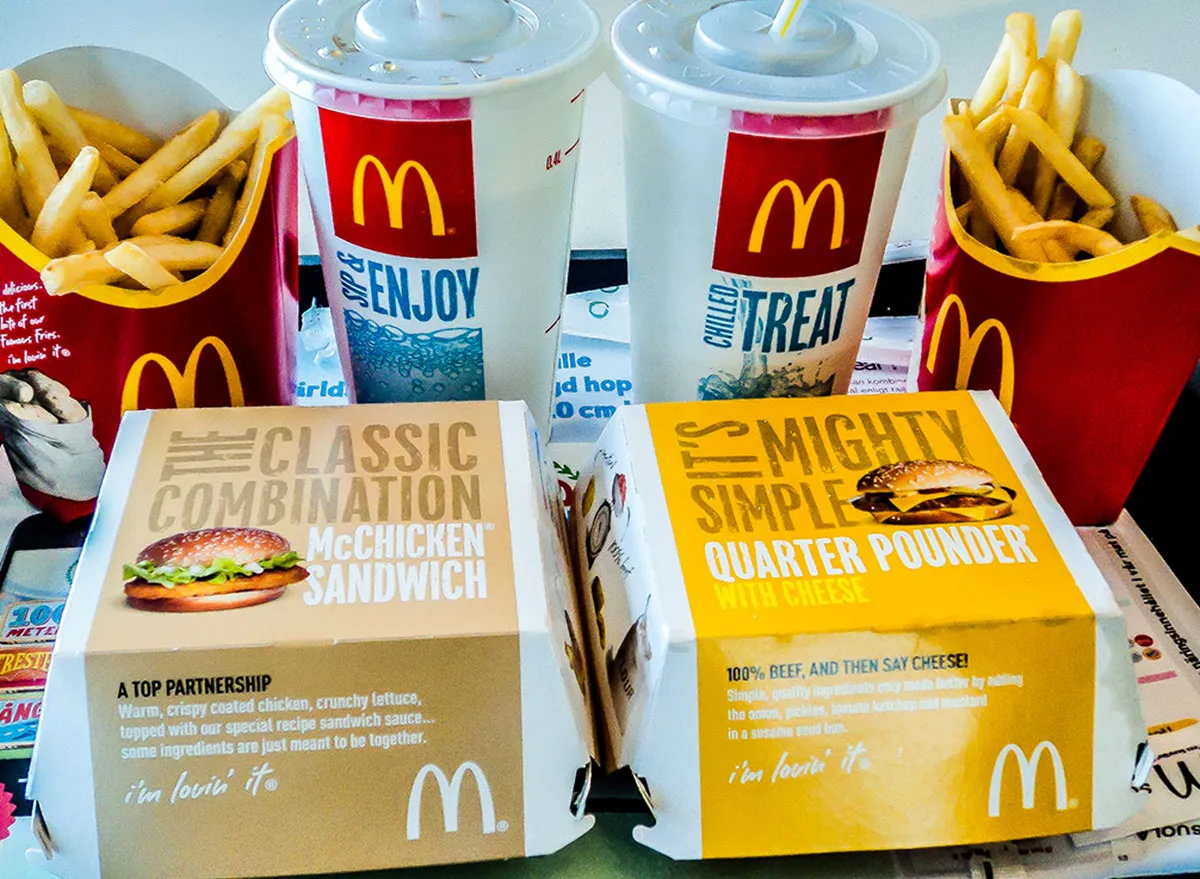
One of the most insidious effects after you eat McDonald’s takes place in your brain. By consuming too much sugar in the form of ice creams or sodas, we can potentially face developing an addiction to the sweet stuff.
“Sugar raises the serotonin and dopamine (happy hormones) in the brain and when consumed in mass quantities, like with this kind of food, your body’s ability to naturally produce it will fail,” says Dr. Newhart. “This means you no longer produce happy hormone on your own and need a substance to do it for you.”
When you need to keep up your physical form, set aside the extra fries or milkshake and opt for more wholesome foods when you visit McDonald’s to avoid the world of hurt that potentially awaits if you overdo it—like one of these 7 Healthiest McDonald’s Orders, According to a Dietitian.
